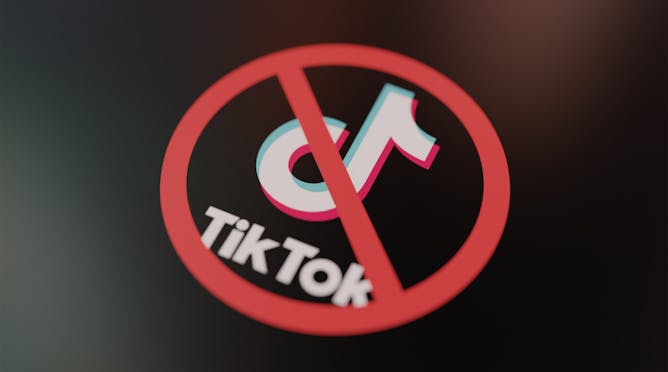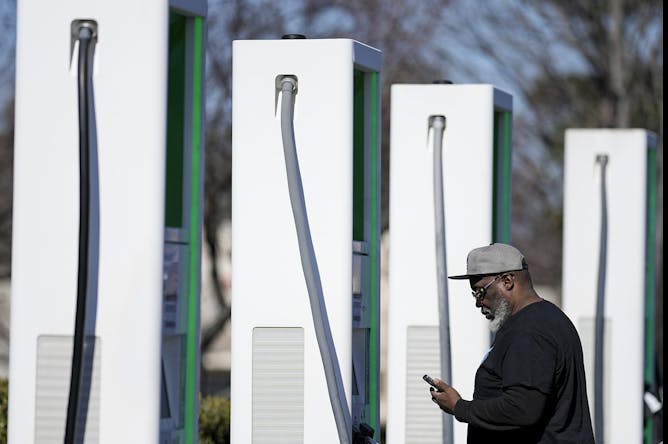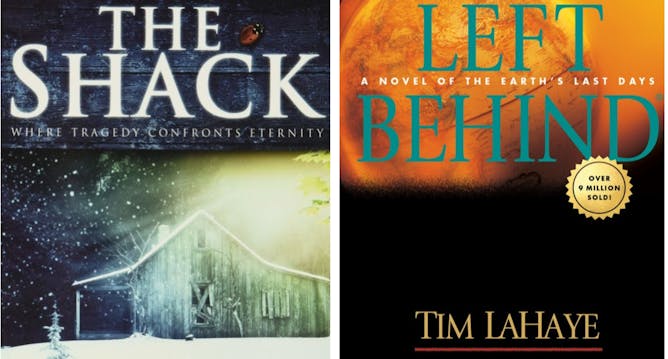|
If you’ve noticed everyone’s talking about TikTok lately, you’re not alone. Today in The Conversation Canada, read about TikTok’s potential as a security threat, the hypocrisy of politicians using the platform while seeking to limit it and how to differentiate between useful health information and the barrage of pseudoscience posted by users.
Wellness influencers on TikTok and other social media platforms can provide useful content, but they can also spur alarming trends, some of which may be medically dangerous. Michelle Cohen of Queen’s University discusses three ways to discern the good from the grift.
But poor health advice isn’t the only issue with TikTok and its content. Robert Diab of Thompson Rivers University explains the reasons behind the investigations and proposed bans of the platform in Canada and the United States, and Aidan Moir of University of Windsor discusses the possible implications for Canadian users, and how and why politicians north and south of the border are piling onto the platform despite the
security issues.
Also today:
All the best,
|

Health information is increasingly being shared online, and often the borders between legitimate health expertise and pseudoscience aren’t clear.
(Shutterstock)
Michelle Cohen, Queen's University, Ontario
How do we distinguish between valuable information from legitimate health experts, and pseudoscientific nonsense from unscrupulous wellness influencers?
|

TikTok poses no more of a threat to democracy than other social media platforms.
(Shutterstock)
Robert Diab, Thompson Rivers University
About 26 per cent of Canadians use TikTok. Regulating the app in Canada might be a better approach to avoiding external political influence.
|

Banning TikTok has economic implications and will affect hundreds of millions of users.
(Shutterstock)
Aidan Moir, University of Windsor
Proposed U.S. legislation banning TikTok and the recently revealed Canadian national security review of the app reveals the insincerity and hypocrisy of politicians.
|

In 2019, a number of current and former Boeing employees went public with concerns about the company’s manufacturing and safety processes.
(Shutterstock)
Thomas Stuart, University of Victoria; Douglas A. Stuart, University of Victoria
Whistleblowers play a crucial role in upholding accountability and integrity within our society. We do not, however, make it easy for them.
|

A man uses an Electrify America electric vehicle charger, Feb. 2, 2024, in Kennesaw, Ga., near Atlanta.
(AP Photo/Mike Stewart)
Osman Alp, University of Calgary; Maximiliano Udenio, KU Leuven; Tarkan Tan, University of Zurich
While barriers still remain, the benefits of electrifying the transport sector are clear for both society and individual firms.
|

In 1995, thousands of Canadians streamed into Montréal from all over Canada a few days before the referendum on Québec sovereignty that ultimately failed.
THE CANADIAN PRESS/Ryan Remiorz
Charles Berthelet, Université du Québec à Montréal (UQAM)
Reflecting on 60 years of constitutional politics helps shed light on a new way forward for Québec politicians.
|

Bestsellers ‘The Shack’ and the ‘Left Behind’ series are both Christian evangelical novels, but reveal different preoccupations.
(Windblown Media/Tyndale House Publishers)
Christopher Douglas, University of Victoria
The ‘Left Behind’ series emphasizes themes of authority, loyalty and sanctity, but they are preferences for order, not moral matters.
|

Les animaux de zoo qui ont mangé des volailles infectées ont été parmi les premières victimes de la grippe aviaire.
(Lou Linwei/Alamy Stock )
Diana Bell, University of East Anglia
La grippe aviaire décime des espèces déjà menacées par le changement climatique et la perte d’habitat.
|
Culture + Society
|
-
Michael Brenner, American University
The Israel-Hamas war has fueled tensions around military exemptions, but the issue has long roiled Israeli politics.
|
|
Politics
|
-
Thomas Doherty, Brandeis University
Can you run for president from a prison cell? One man did in the 1920 election and got almost a million votes.
-
Stefan Wolff, University of Birmingham
While Ukraine’s fortunes on the battlefield have been mixed, its operations in Crimea and the Black Sea have been rather more successful.
|
|